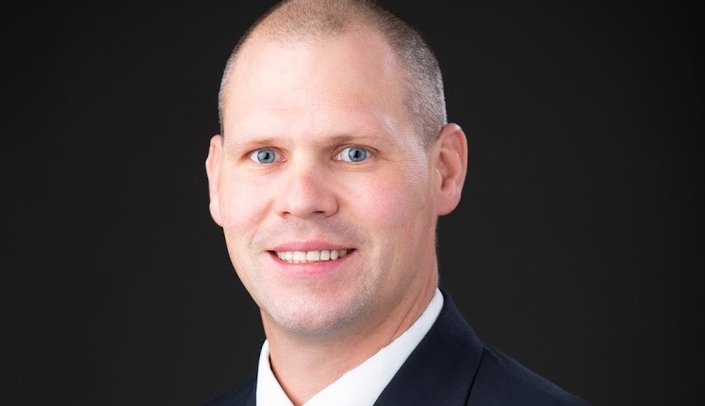There were only 300 people in the rural Montana town Dustin Slivka, PhD, grew up in.
A professor in the school of health and kinesiology at the University of Nebraska at Omaha, Dr. Slivka recalls milking cows, feeding chickens and picking vegetables from the family’s large garden.
"Our family was completely self-sufficient, we raised cattle as well as grew wheat and barley on the farm and ranch," Dr. Slivka said.
Athletic in his youth, Dr. Slivka ran track, played basketball and later football in high school, which led to an athletic scholarship to play football at Rocky Moutain College in Montana where he pursued a bachelor’s degree in exercise science.
It wasn’t until he was in graduate school pursuing a master’s degree in health and human performance that Dr. Slivka discovered scientific research when he was invited into the lab of his academic advisor, Dr. Steven Gaskill, a former Olympic ski coach.
From the minute he stepped into Dr. Gaskill’s lab Dr. Slivka knew he wanted to become involved in scientific research.
"If it weren’t for his initial invitation, I wouldn’t have known how to get involved in academic research, or that those kinds of opportunities existed for students, so I am grateful and try to emulate what he did for me for the undergraduate students I invite into my lab at UNO," Dr. Slivka said.
Today Dr. Slivka continues to pursue research in the field of human bioenergetics and has a two-year $750,000 Department of Defense Air Force grant.
The focus of his research is on human performance in extreme environments investigating optimal acclimation strategies to overcome performance declines associated with extreme heat and cold.
In this unique translational research, Dr. Slivka conducts experiments using an environmental chamber and field research on Hawaii’s big island, where they can go from sea level conditions to 14,000 feet in an hour-and-a-half. He also conducts cold weather research in Alaska.
"We can conduct similar experiments to our field research in the lab using the environmental chamber, where we have stringent controls and can fine tune our procedures, but there is nothing compared to conducting studies in the field and we hope to return to those experiments soon," Dr. Slivka said.
The NE-INBRE program has been invaluable, he said, in connecting him with likeminded faculty, as well as financial support through the developmental research project program funding he has received.
"It’s been an important network for me," Dr. Slivka said. "I’ve met other faculty who are passionate about research and passionate about mentoring students, and I have the financial support to keep my research agenda moving forward between funding opportunities which is critical in allowing me to continue to involve students in my work."
